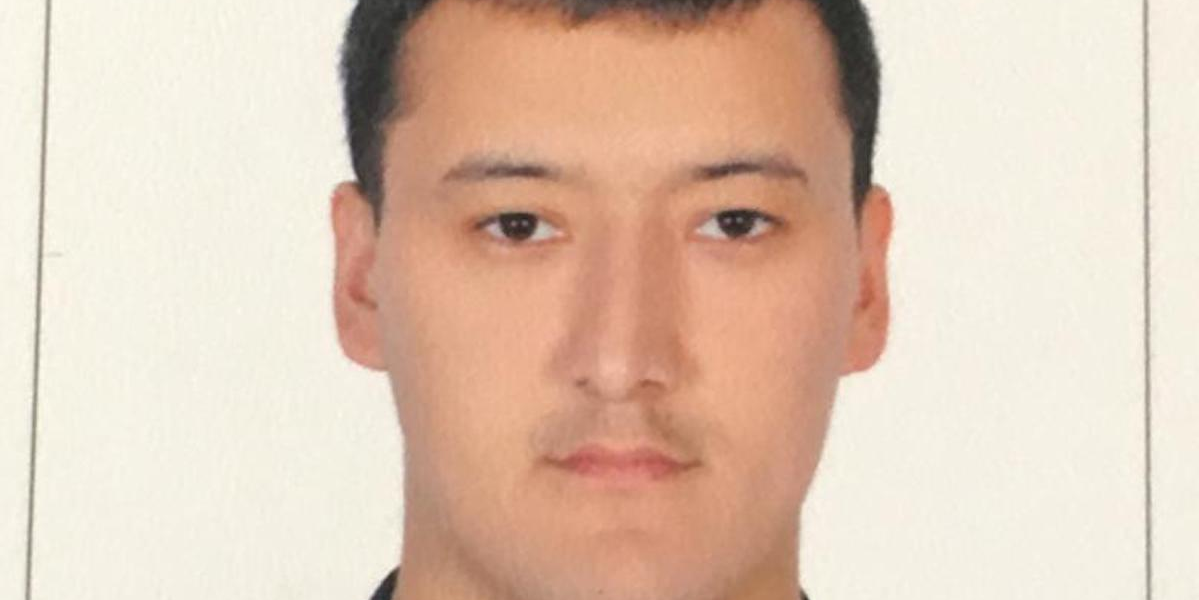- Abudujilili Supi, a Chinese Muslim of the persecuted Uighur ethnic minority, was arrested for no clear reason in the United Arab Emirates last week.
- His family fears that he was arrested for being Uighur, and that he will be deported to China and imprisoned there.
- His wife witnessed the entire arrest, and has since fled to Turkey. Supi’s brother, who is currently with her, told Business Insider what happened.
- This is one of the first cases of a Uighur family in the Gulf region speaking out about an arrest and potential deportation to China.
A man belonging to China’s persecuted Muslim Uighur community was arrested for no apparent reason last week, an act which his family fears is down to his ethnicity and could see him deported to China and punished.
Abudujilili Supi, a Chinese citizen living and working in the United Arab Emirates, was arrested by four men outside his local mosque last Thursday, Supi’s brother Mijiti Yisake told Business Insider in a series of WhatsApp messages.
He says Supi’s captors – it is not clear whether they are police – told him he will be taken to China. Yisake fears that if his brother is deported to China, he will be imprisoned in a detention center or re-education camp.
Rights groups have accused China of imprisoning up to 1 million Uighurs in such camps in the western Chinese region of Xinjiang, where some 8 million Uighurs live.
This is one of the first cases of a Uighur family in the Gulf region speaking out about an arrest and potential deportation to China.
Dozens of Uighurs in other countries have already been deported to China, according to experts and families, who fear they have been held in degrading re-education camps.
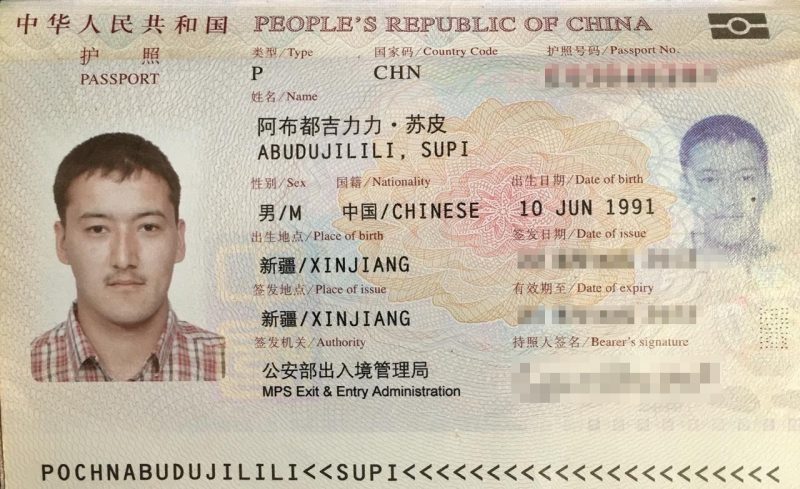
The arrest
Supi's wife, a Muslim Uighur named Mayila Xianmuxiding, witnessed the arrest from their apartment, which overlooked the mosque. She described the incident to Yisake, who relayed details to Business Insider.
According to Xianmuxiding, Supi entered the Abdullah Bin Rawahah Mosque in Sharjah, a city northwest of Dubai, for daily prayers around 4 p.m. and left around 4:20 p.m.
While Supi was praying, his wife said four men who looked Emirati were waiting outside the mosque for prayers to end. Xianmuxiding doesn't know how long they were waiting there - she said she had been praying at home around the same time her husband was at the mosque, and only looked out when she was done.
After Supi exited the mosque, she said the four men approached her husband, grabbed his arms, and bundled him into a small white car. It all happened quickly, Yisake said, citing his sister-in-law.
Xianmuxiding thought the four men who approached her husband were fellow worshippers at the mosque at first, she said. She said she didn't realise who they were until the mosque's cleaner told her the four men were Emirati police.
Business Insider has not been able to establish who the men were, and the Emirati government has not responded to questions.
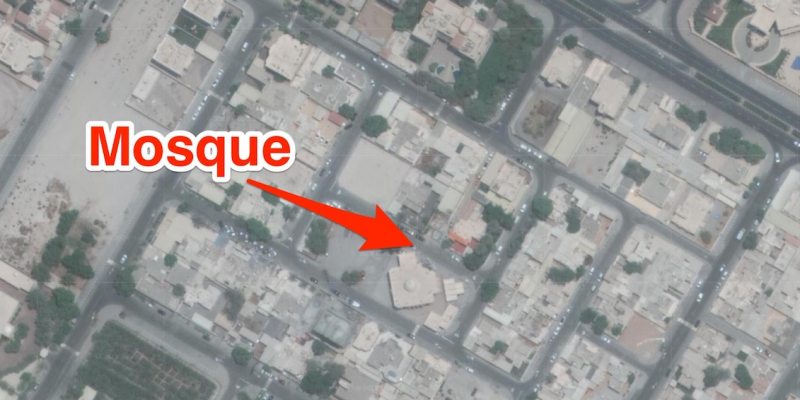
"I am going with people"
Supi called Xianmuxiding three days after the arrest, on Monday.
"Please travel to another country," he told his wife, according to Yisake. "I am going with people. I don't know where I am going. They said to me, 'You will be returned to China.'"
Supi didn't specify who the "people" were - his family thinks he meant the police.
That was the last time Supi and his wife spoke.
Xianmuxiding has since fled to Istanbul, Turkey, where she remains with her brother-in-law Yisake. "She is feeling very sad about her husband," Yisake told Business Insider.

Supi, 27, was born in Xinjiang, and studied in Egypt before traveling to the UAE to learn English. After his studies, he found a job as a muezzin - who leads and recites the daily call to prayer - for the local government in Sharjah.
Although he remained a Chinese citizen, he lives and works legally in the UAE, Yisake said. Business Insider has seen copies of two legal documents confirming Supi's employment, his UAE residency card, and Chinese citizenship.
Yisake and Supi both left China in 2012, but have returned every year to visit. Their last visit was in 2016, Yisaki said.
They still have about 30 relatives still in Xinjiang, but Yisake doesn't know where they are - he thinks they have all been locked up in prison camps.
There's no way of finding out, he says. If he tries to contact them on WhatsApp or WeChat - the popular Chinese messaging app monitored by the Chinese government - the state will come for his family, Yisake said.
"If we call them from abroad, Chinese police will torment our family members in East Turkestan," Yisake told Business Insider, "and put them in prison." East Turkestan is the name many Uighurs use for Xinjiang
"Everything and everyone's phones are controlled by the government."
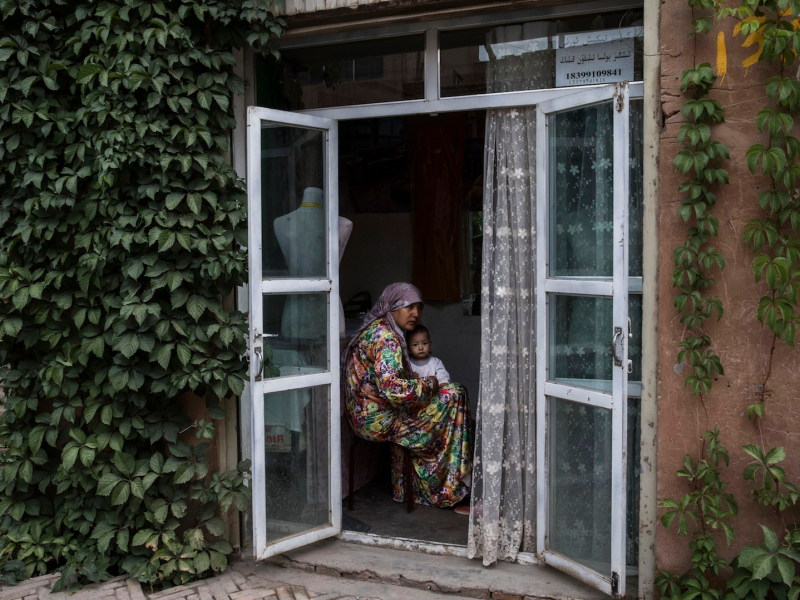 Foto: A Uighur woman holds her child in Kashgar, Xinjiang, in June 2017.sourceKevin Frayer/Getty Images
Foto: A Uighur woman holds her child in Kashgar, Xinjiang, in June 2017.sourceKevin Frayer/Getty Images
Why this family is speaking out
The UAE government has not responded to Business Insider's numerous requests for confirmation on Supi's case.
Two experts have independently told Business Insider that they are aware of it.
Both say that this is the first case in which a Uighur has publicly spoken out about an impending deportation to China from the UAE.
Yisake told Business Insider: "If I don't mention this story, he will be deported to China."
"We understand every country's laws and we obey the laws of all countries we live in," he added. "Why does the Chinese government speak about us like all Uighur people are criminals?"
Beijing has repeatedly justified its surveillance and crackdown in Xinjiang as preventing terrorism, and insisted that detaining Uighurs was "not mistreatment," but "to establish professional training centers, educational centers."
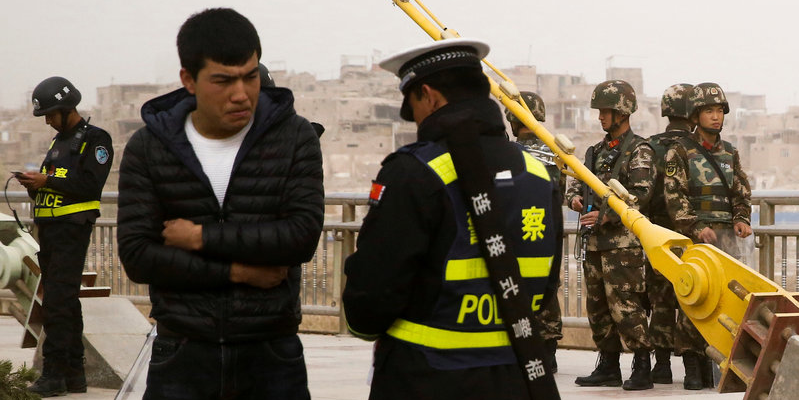
Rian Thum, an historian on Islam in China at Loyola University New Orleans, told Business Insider:
"Uighur exiles in the Middle East often feel that they remain there at the whim of their host governments, and that if they make any public complaints they themselves risk deportation to China and near-certain confinement in mass-internment camps.
"It's difficult to know whether the lack of public complaint about incidents in the Gulf states is a reflection of these fears or of a low incidence of actual threats."
Egypt, one of China's economic partners, deported at least 12 Uighurs back to China last summer, with at least 22 more detained for no reason, according to The New York Times. Statistics on other Muslim countries' record on Uighur arrests and deportations are not clear.
Sophie Richardson, the China director of Human Rights Watch, also told Business Insider:
"On the chances for deportation or the UAE releasing him: We just don't know.
"But if he is returned to China we share his family's concerns that he is at high risk of ill-treatment, arbitrary detention, and/or other human rights abuses."
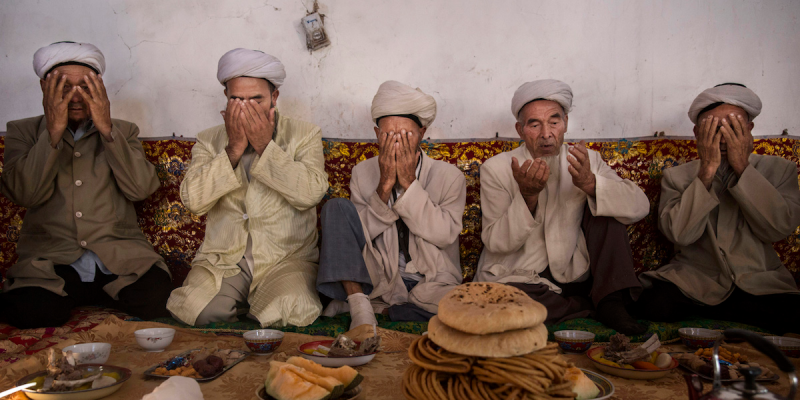
Leaders of Muslim countries have been silent over China's repression of Uighurs in Xinjiang, with some experts attributing this to their reluctance to anger Beijing and risk losing its economic investment.
Last week officials in Pakistan, China's largest Muslim ally, broke ranks to criticize China's treatment of the Uighurs. Muslim groups across southeast Asia protested against the Chinese camps this month, with activists in Pakistan accusing its government of betraying Muslims for economic benefit, the Wall Street Journal reported.
Some Western countries, however, have spoken up. Earlier this month the UN human rights chief, Michelle Bachelet, called for international monitors to be let into Xinjiang. (Beijing told her to back off and "respect China's sovereignty" in response.)
The Swedish government also halted the deportation of an unspecified number of Uighurs to China due to concerns over their treatment, according to Agence-France Presse. Germany also halted the deportations of all Uighurs to China, citing the same concern, last month.
Richardson said: "The UAE would do well to examine the recent decisions made by Germany and Sweden to not forcibly return Uighurs or other Turkic Muslims to China."

